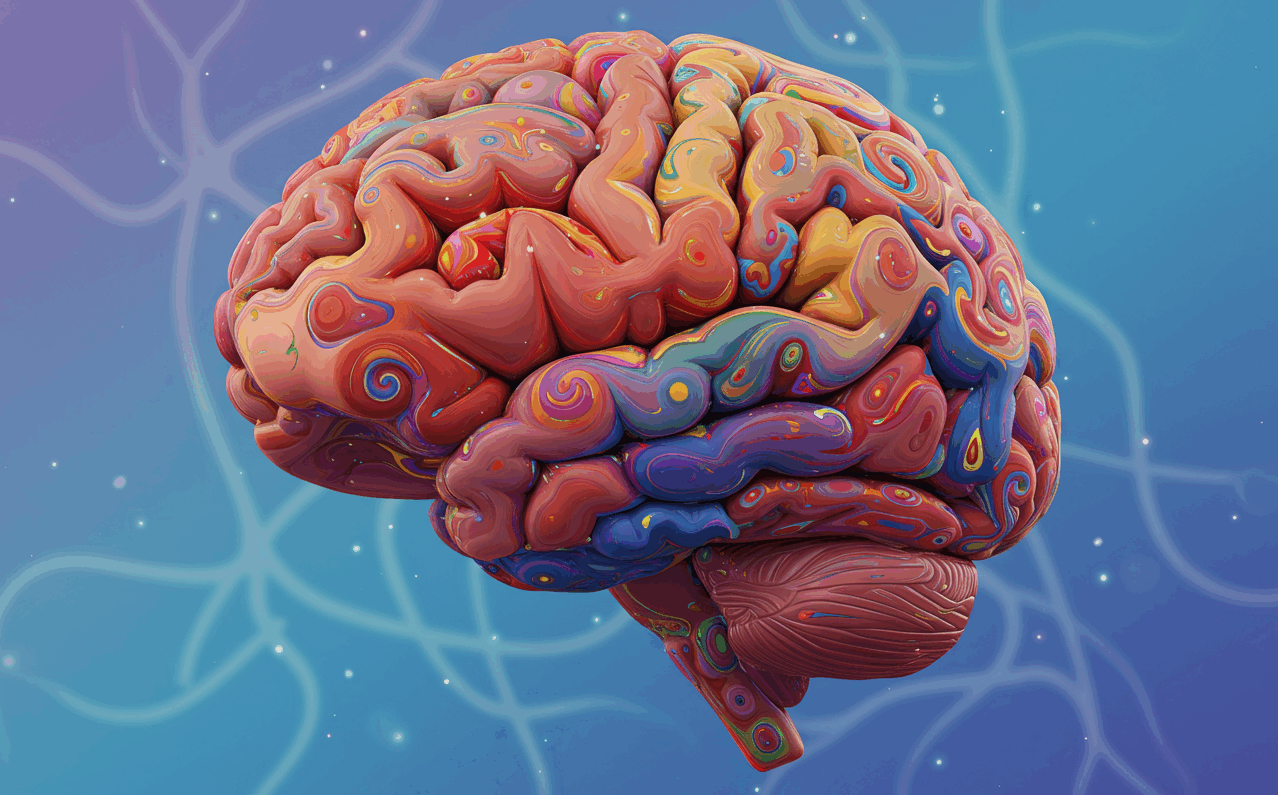The most commonly prescribed medications to treat ADHD are methylphenidate (Ritalin), atomoxetine (Strattera), lisdexamphetamine (Vyvanse), or dextroamphetamine (Adderall). They are all amphetamines, but they differ in how they are released into the system or what other chemicals they are combined with. Also, not all of them are available in all countries. For example, Adderall, the most commonly prescribed ADHD medication in the US, is banned in the EU.
What do they do, and why is an amphetamine prescribed for people whose brains run too fast? The short answer is that they have the opposite effect on us than they do on a neurotypical person. All of these drugs increase the levels of chemicals/neurotransmitters that we do not naturally produce enough of. These neurotransmitters include dopamine and norepinephrine, which are basically responsible for concentration, i.e. the executive function of the brain, as well as feelings of well-being. So these chemicals actually slow our brains down!
How does that feel or look? Well, the first time I took Ritalin, I felt a little euphoric at first. But as the medication was slowly released into my bloodstream, I actually felt relaxed and almost sleepy, and my brain started to get a lot quieter. I was able to focus and concentrate. I was also able to have “normal” conversations, meaning that a) I was present instead of missing what was being said because I was somewhere else, and b) I didn’t interrupt anymore because the urge to interrupt because I wasn’t sure I would remember what I wanted to say was gone. In other words, I had impulse control. Believe me, this was very obvious to the people around me!
How do I take the medication? Well, the proper dosing and finding the right medication takes quite a while. I am on a medication called Medikinet, which is a newer version of Ritalin. It is slowly released into the bloodstream, but still has to be taken twice a day. Dosing is rather rough and I have been trying to find the right dose since May (2024). In addition, Medikinet cannot be taken on an empty stomach and I used to eat breakfast rather late, which meant that I couldn’t take the second dose, which brings me to the side effects.
If I take too little of the medication, my brain is still racing and it is hard for me to concentrate and get things done. My impulse to start 50 things and not finish any of them is strong, so I have to fight myself, make lists, and set timers to keep from going crazy. But when I take a higher dose, the rebound effect, when I come off the meds, is almost unbearable.
I get terrible headaches, especially in the morning when I wake up, but mostly in the evening when there’s little medication left in my system. The insomnia is real, so I cannot take the second dose too late; sometimes not at all. Other very unpleasant side effects include hot flashes, dry mouth, sweaty hands, palpitations, shortness of breath, and anxiety. The latter causes me to clench my jaw so hard that I get tension headaches from my neck down. The anxiety can also get so high that I feel almost paralyzed and don’t want to leave the house or just move from where I am sitting because I’m trying not to feel my body and have to distract myself. It almost feels like I am trapped in my body.
And with all this comes aggression. I am so tense that I am hyper-focused on my surroundings. For example, being in the car makes me want to cry because my depth perception seems to be off, so I am constantly aware that we are too close to another car. Any suggestion or “feedback” sounds like criticism and makes me angry. The rebound effects are greatly minimized by being distracted, so when I am out with people or attending a work function.
People may wonder why I would take something with such side effects. The truth is, the world is a million times worse without them. People at work have noticed that I feel calmer, happier, more focused and present, and overall “better”. It’s this feedback that makes me keep trying, and honestly, I couldn’t do my job, clean my house, or function at all without them. However, I will be asking my doctor at my next visit to possibly prescribe another medication that may work better for me. As I said, the initial dosing and trials to find the right medication take quite a while.
In the end, I’m doing better on medication. I check my blood pressure to make sure it stays normal, and at the hospital they did two EKGs to make sure my heart was okay. The statements that ADHD will eventually go away or can be controlled with vitamins/minerals and behavioral therapy are false and do more harm than good. This is the brain I have and if I want to have a decent life I need to regulate my brain chemistry with medication.
